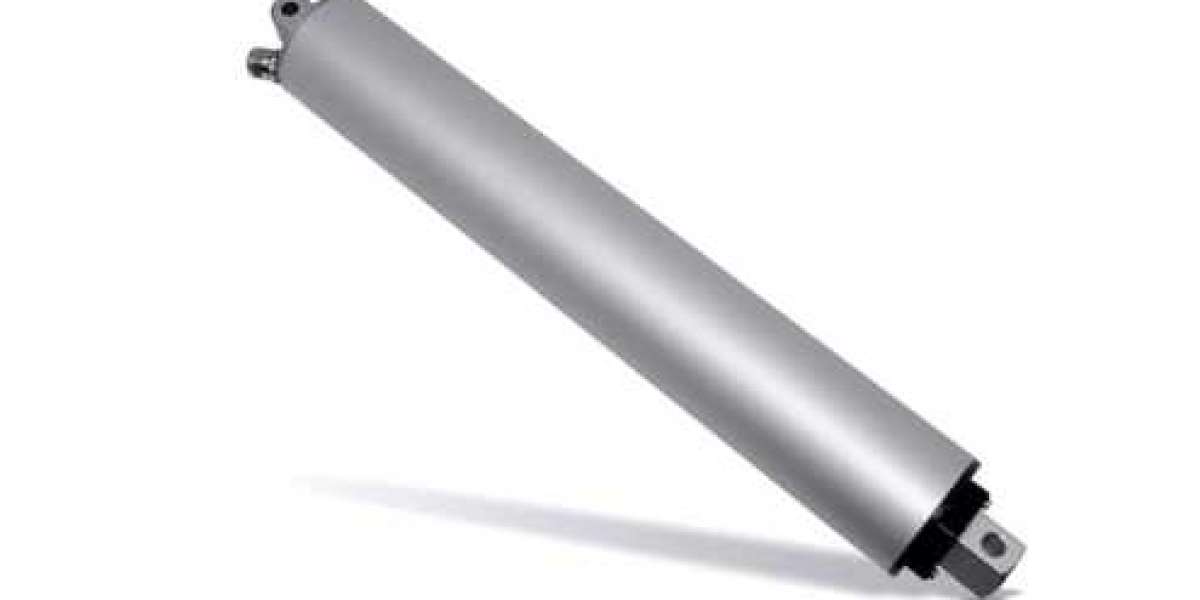Energy efficiency is a key concern for manufacturing facilities aiming to reduce operational costs and minimize their environmental impact. One of the crucial components that play a significant role in enhancing energy efficiency is the Industrial Actuator. These devices are responsible for converting electrical energy into mechanical motion, facilitating precise control of machinery, valves, and other mechanical components in manufacturing systems. By improving the control of critical processes, Industrial Actuators ensure that energy is used optimally, resulting in reduced waste and enhanced operational efficiency.
This article explores how Industrial Actuators contribute to energy efficiency in manufacturing, highlighting their impact on various processes and how they can drive sustainability and cost savings in industrial operations.
What is an Industrial Actuator?
An Industrial Actuator is a device that converts energy into mechanical motion to drive various industrial processes. These actuators can use electrical, hydraulic, or pneumatic energy to control components like valves, gates, and robotic arms in manufacturing systems. Industrial Actuators are essential for automating operations, controlling movement, and ensuring systems operate within optimal parameters.
In manufacturing facilities, they are used to control flow rates, pressure, temperature, and position in various production processes. The precise movement and control provided by Industrial Actuators lead to improved efficiency and better use of resources, making them a vital part of energy-efficient manufacturing systems.
The Role of Industrial Actuators in Energy Efficiency
- Precise Control for Energy Optimization
Industrial Actuators enable precise control over production processes, ensuring that machines and systems operate at the most efficient settings. For example, in a production line where machines are involved in cutting, forming, or assembling, Industrial Actuators regulate the movement of these machines with high precision. By making sure that machinery only operates when needed and with the appropriate force, energy is used efficiently, reducing wastage.
For instance, actuators controlling heating systems can adjust temperature based on real-time data, ensuring that excess energy is not consumed. In industrial settings, these small but crucial adjustments can add up to significant energy savings.
- Energy-Efficient Automation
In many manufacturing facilities, automation is key to reducing labor costs and enhancing efficiency. Industrial Actuators are integral to automation systems that optimize energy consumption. For example, automated systems controlled by Industrial Actuators can adjust the speed of production lines, ensuring that equipment operates only at the required capacity.
This reduces unnecessary energy consumption by avoiding idle or inefficient machine operations. With automated systems powered by Industrial Actuators, facilities can achieve better load balancing, preventing equipment from working harder than necessary and minimizing energy use.
How Industrial Actuators Impact Key Processes in Manufacturing
- Energy Savings in Fluid and Gas Flow Control
In manufacturing processes that involve the control of fluids or gases, Industrial Actuators are used to precisely regulate flow rates, pressure, and temperature. For example, in a system that uses hydraulic or pneumatic power, the Industrial Actuator controls the opening and closing of valves to regulate the flow of fluids. By ensuring that valves only open or close as necessary and at the correct rate, Industrial Actuators prevent the waste of energy.
In applications such as chemical manufacturing, food processing, and HVAC systems, these actuators can reduce the energy required for heating, cooling, or fluid transport, contributing to substantial energy savings.
- Optimizing Heating and Cooling Systems
In industrial facilities that rely on heating and cooling systems to regulate the temperature of machinery or production areas, Industrial Actuators help optimize energy consumption. These actuators control the position of dampers, valves, and fans, adjusting airflow and temperature based on real-time conditions. This ensures that heating or cooling is used only when necessary, avoiding energy waste.
For instance, in a large industrial plant with complex HVAC systems, Industrial Actuators can dynamically adjust the temperature settings in different sections of the facility based on the workload or ambient temperature, improving overall energy efficiency.
Benefits of Industrial Actuators for Energy-Efficient Manufacturing
- Reduced Operating Costs
By optimizing energy use, Industrial Actuators help manufacturers reduce operating costs. With precise control over machines, production lines, and processes, businesses can minimize energy wastage and improve the overall efficiency of their operations. This can lead to substantial savings on energy bills and a quicker return on investment.
- Increased System Longevity
Efficient energy use is not only about cutting costs—it also improves the lifespan of industrial systems. By using Industrial Actuators to prevent overuse of machinery or unnecessary energy consumption, businesses can extend the life of their equipment. This results in fewer breakdowns, reduced maintenance costs, and lower replacement expenses.
- Improved Environmental Sustainability
With increasing pressure to adopt environmentally sustainable practices, manufacturing facilities are turning to energy-efficient technologies to reduce their carbon footprint. Industrial Actuators contribute to this effort by optimizing energy consumption and lowering greenhouse gas emissions. By using energy more effectively, manufacturing systems contribute to overall sustainability goals and support green initiatives.
Technological Innovations in Industrial Actuators
As industries continue to evolve, so do the technologies behind Industrial Actuators. Innovations such as IoT integration, predictive maintenance, and AI-powered automation are making Industrial Actuators smarter and more energy-efficient. These advancements help facilities predict when and how to use energy most efficiently, making real-time adjustments based on data and system requirements.
- IoT-Enabled Actuators
IoT-enabled Industrial Actuators allow for better data collection and analysis. By integrating sensors and connectivity, these actuators can provide real-time information on energy consumption, flow rates, and operational status. This data can be used to optimize energy usage and perform predictive maintenance, reducing energy wastage and increasing system efficiency.
- AI and Predictive Maintenance
AI-powered actuators can analyze data from sensors to predict when maintenance is needed, preventing energy inefficiencies caused by malfunctioning equipment. Predictive maintenance ensures that systems run at peak efficiency, reducing the risk of energy losses due to mechanical failures or unnecessary downtime.
Frequently Asked Questions
- How do Industrial Actuators contribute to energy efficiency?
Industrial Actuators optimize control over machinery, reducing energy waste by adjusting systems with high precision and minimizing unnecessary operations.
- What industries use Industrial Actuators for energy efficiency?
Industrial Actuators are widely used in manufacturing, HVAC systems, robotics, and process control industries to improve energy efficiency.
- Can Industrial Actuators help reduce operating costs?
Yes, by optimizing energy use and reducing waste, Industrial Actuators contribute to lower operating costs and improved system performance.
Maximizing Energy Efficiency in Manufacturing with Industrial Actuators
Industrial Actuators play a vital role in enhancing energy efficiency in manufacturing facilities by offering precise control, reducing energy consumption, and improving automation. Their ability to optimize various processes, from fluid flow regulation to temperature control, helps manufacturers reduce costs, improve sustainability, and enhance overall operational performance.
For businesses looking to integrate energy-efficient solutions into their manufacturing processes, ETI Systems offers high-quality Industrial Actuators designed to optimize



